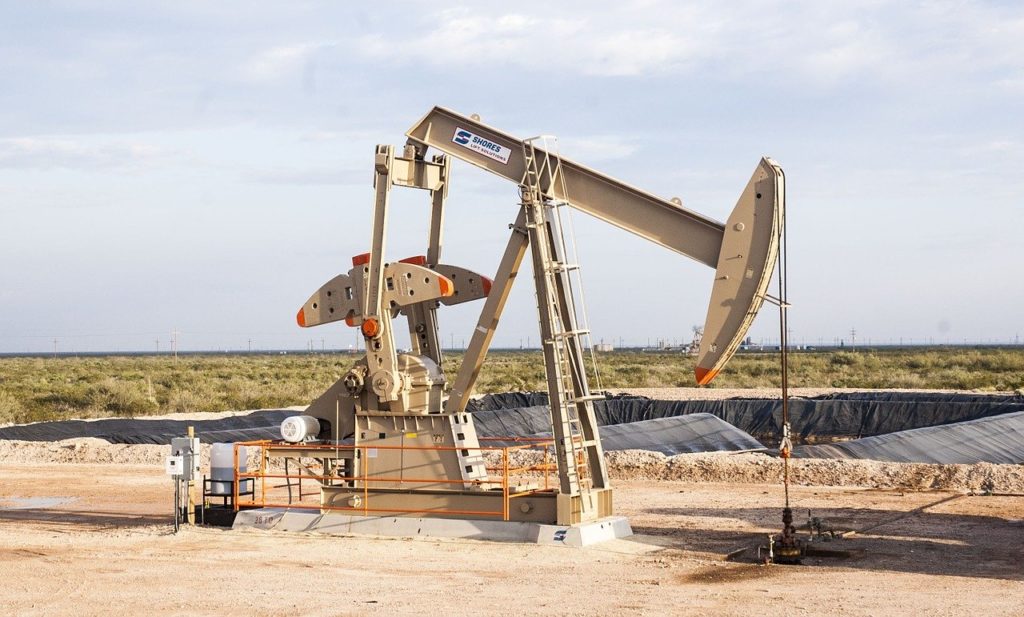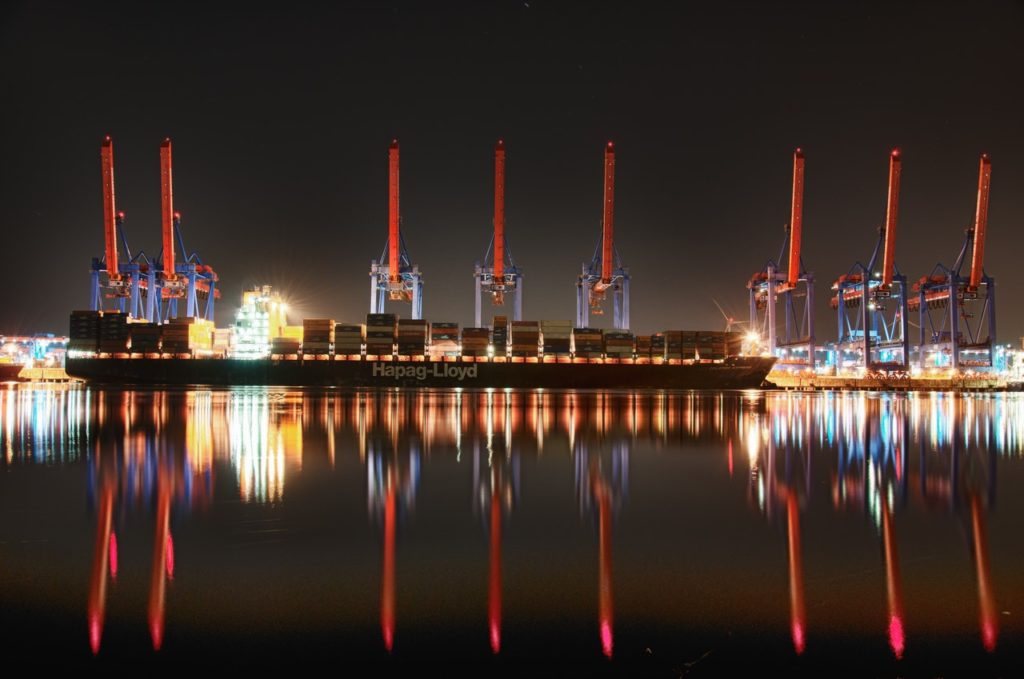Do you want to learn more about the difference between mechanical vs petroleum engineering? In this blog post we outline everything you need to know about the similarities and differences between mechanical vs petroleum engineering.
First, if you’re looking to launch your own blog and start writing articles yourself, no matter what the subject, you can launch your blog with Bluehost for just $3.95/month.
Start creating content and launch your blog with Bluehost.
Mechanical Engineering
Mechanical engineering is one of the four main engineering disciplines. This particular form of engineering combines mathematics and engineering physics with material science to examine, manufacture, design and maintain mechanical systems. Being one of the most advanced engineering fields, mechanical engineering is also one of the most diversified.
Mechanical engineering is all about the manipulation of movement. Solving real world problems through the application of technology and science. Mechanical engineers can produce prosthetic limbs, design new technology that will create wireless chargers and also 3D printers, develop better and cleaner water supplies and improve food production. They may even work on developing robotic manufacturing plants. All of this, while also making the captivating products that mechanical engineers are also connected to, such as fast automobiles, faster planes and even faster rockets!

Ultimately, mechanical engineers design and create, typically using 3D CAD programs like AutoCAD, Revit, Inventor and Fusion 360.
Almost every industry is dependent on mechanical engineering to advance, and mechanical engineers are needed all over the world. Mechanical engineers are usually paid very well as there is a large demand for them globally.
Mechanical engineers are dedicated to solving some of the worlds biggest obstacles:
- Where will the energy we need come from?
- What will secure our infrastructure for the future?
- When will there be humans on Mars?
- How can we provide for an ever-growing population?
- How do we live more efficiently?
Technical expertise will not satisfy these big questions, mechanical engineers will be needed as they are creators that turn possibilities into actuality.
Petroleum Engineering
Petroleum engineering is involved in the activities related to the formation of hydrocarbons, which are natural gas or crude oil. Exploration and formation are deemed to be included in the upstream division of the gas and oil industry. Petroleum engineering and earth science are the gas and oil industries two main subsurface industries, these are focused towards maximizing the economical retrieval of hydrocarbons from subsurface reserves.
Geology and petroleum geophysics’ focal point is the hydrocarbon reservoir rock. While the petroleum engineering focal point is geared towards the evaluation of the recoverable volume of this resource, using an intricate understanding of the behavior of oil, water and gas within the penetrable rock at high pressure.
Petroleum engineers use supercomputers in the simulation of reservoir behavior, analysis of exploration data, the automation of drilling operations and oilfield production. The future of petroleum engineers consists of many challenges and opportunities. They must develop and apply new technology to recover hydrocarbons from offshore gas and oil fields and also oil shale. They must also create new methods to revive oil left behind after uses of conventional producing methods.

Petroleum engineers have the opportunity to work and travel across the globe as petroleum companies carry out campaigns all over the world. Petroleum engineers must resolve a variation of technological, political and economic obstacles encountered in these tasks. These challenges are what makes a petroleum engineers occupation the most fulfilling.
Petroleum vs Mechanical Engineering Careers
Mechanical Engineering
Mechanical engineers usually start as an aide to experienced mechanical engineers. The next step in their career is generally that they become a supervisor and with more experience can become experts in their field, with some progressing to managers and even executives. Mechanical engineers also can progress to research directors. Mechanical engineers can also take a different route and start their own business which can include manufacturing companies or consulting businesses.
The rate of employment growth for the average occupation is 5% and with mechanical engineering that is no different, which means employment for mechanical engineers from 2018 to 2028 is looking promising. There will always be a demand for machinery and industrial devices. Mechanical engineers will always be needed to invent complicated new devices, also up and coming technologies will produce new occupational positions for mechanical engineers. Not only that but mechanical engineers also possess skillsets that can be used in other engineering disciplines.
A mechanical engineer’s usual work week is 40 hours, however some factors can affect this: for example if they are working on a project where a deadline needs to be met it is not uncommon for the engineer to put in as much overtime as is needed. For the most part, mechanical engineers spend most of their time in a bright and clean offices, however there may be a need for them every once in a while to visit a construction site or factory. Since there are so many different occupations that mechanical engineers are employed in it is hard to pin down exact working conditions.
Mechanical engineers should possess knowledge in both math and science. Machinery should be something that they are comfortable working with, while also utilizing it to solve problems. Mechanical engineers need to be good communicators and also need to work well with others, as they will need to explain the intricate details of their proposals to their colleagues.
Petroleum Engineering
Petroleum engineering on the other hand is projected to have a slower growth rate from 2018 to 2028, with that rate being only 3%. Employment growth will largely depend on oil prices. An increase of capital investment in new facilities and expansion of existing production operations may only come from higher oil prices.

A degree in petroleum engineering offers you many rewarding opportunities as well as financial benefits. Petroleum engineers are the highest paid of all engineering roles. The Bureau of Labor Statistics (BLS) states a petroleum engineers salary in May 2018 stood at $137,170. Payscale.com states that a petroleum engineering salary at the entry-level was about $85,472 annually, as of 2019.
It is crucial to have devised a plan to secure a competitive petroleum engineering job despite having a degree from an ABET accredited school. Thankfully there are a variety of different paths that can be taken to securing your dream job.
Like mechanical engineers, petroleum engineers usual spend most of their work time in offices, however they can be needed at well and drilling sites. Commonly, visits to sites or meetings with other engineers, customers and oilfield workers are needed.
Mechanical vs Petroleum Engineering Education
Mechanical Engineering
Scientific principles and mathematics are both used in construction, manufacturing, mechanical engineering education and also engine design. A bachelors degree is the minimum degree required for mechanical engineering students, this degree is typically in mechanical engineering. There are many related fields of engineering such as aeronautical, aerospace or biomedical engineering.
Some other relevant sub-fields are alternative energy and re-manufacturing – this is the process of rebuilding products after they are worn out. There is also the option to pursue a graduate or a doctorate degree/program, which can lead to a much greater opportunities in salary prospects and leadership. Engineers can also improve their skills via online classes that can be found on the likes of LinkedIn Learning and edX.
If you have opted to create your own business and provide your services to a client, in the USA, all 50 states require you to obtain a license. There are two exams in which you must pass before you can apply for this license , FE (Fundamentals of Engineering) and PE (Principles of Engineering). Additionally, you are also required to show four years of progressive experience working under a Professional Engineer, and possess at the minimum a bachelors degree in mechanical engineering. These degrees should be accredited by the ABET (Accreditation Board for Engineering and Technology), and the US Department of Education’s CHEA (Counsel for Higher Education Accreditation). The PE credential is very useful as it allows engineers to be employed in governmental positions or to consult clients.
.

Petroleum Engineering
After four years you can acquire a bachelors degree in petroleum engineering. This degree requires you to carry out classwork, labs and fieldwork. Petroleum engineering requires you to possess knowledge of the basic sciences such as calculus, chemistry, differential equations and physics. Petroleum engineers should also be interested in taking courses that cover topics such as introduction to petroleum engineering, computer applications, well construction rock properties and natural gas engineering.
There are many different ways to obtain a degree, some engineering schools offer a combination degree which is a bachelors and masters degree program which takes five years to complete. While other schools offer a six year program that incorporates work experience. The completion of a masters degree may qualify the petroleum engineer to acquire a research or teaching job.
Just like mechanical engineers all 50 states in the USA require independent engineers to be licensed, but a license may be optional if you are working under a licensed engineer. This also applies to petroleum engineers, state boards require a minimum of a bachelor’s degree in engineering from a school accredited by the ABET. In some states it is also a requirement to continue your education in order to retain your license.
Petroleum engineers also have the option to obtain a certification from the Society of Petroleum Engineers. The work, education and testing requirements are all the same as they are for state licensing. However, there is an extra requirement that you must join the society which implies taking 16 hours of professional education per year to be certified.
Mechanical vs Petroleum Engineering Job Description
Mechanical Engineer
Air-conditioners, refrigerators, and even elevators are designed and developed by mechanical engineers. Similarly, the advancement of vehicle engines and electrical devices are made through the investigations carried out by these engineering professionals, especially as the exploration of energy efficient devices and cutting edge thermal sensors become more attainable.
Mechanical engineers spend a huge block of their time using a computer. They build imitations and representations of their inventions using CAD (Computer Aided Design). During this procedure, they also analyze the data generated by these experiments. If the prototype produced an issue, mechanical engineers have the skillset to investigate and design specific solutions to the problems.
Mechanical engineer job responsibilities include:
- Presenting designs to both managers and clients
- Writing reports and documentation
- Using Computer Aided Design/modelling software
- Creating budgets, timescales and specifications with clients and managers
- Producing and implementing designs and test procedures
Petroleum Engineer
Petroleum engineers are accountable for the creation of devices such as drills and the planning of methods and procedures used to draw gas and oil from both offshore and onshore reservoirs. Main duties include the creations of plans based on expenses, labor and practicability. As petroleum engineers advance they generally progress to more senior roles. Additionally, they possess a larger sense of independence, such as the accountability of decision-making for larger and more demanding projects, which is dependent on acquiring a Professional Engineering (PE) license.

Most employers favor a professional engineering license, this type of license is usually associated with the more senior, experienced engineers. Employers will look for candidates that have great attention to detail along with possessing strong analytical skills that are communicated intricately in their reports and presentations.
Job responsibilities of a petroleum engineer include:
- Create plans based on expenses, labor and practicality
- Ensure equipment is installed, operated and maintained properly for effective use
- Monitor drilling operations as needed
- Create proposals and techniques to pump oil and gas from fields
- Design and transform devices and designs based on performance observation
Thank you very much for being here – we appreciate you taking the time to read our content. If you have anything to add, please feel free to leave a comment down below, and sign up to our newsletter for more of the same!
You can also follow us on LinkedIn, Facebook, Twitter, and Instagram so you can stay up to date.



